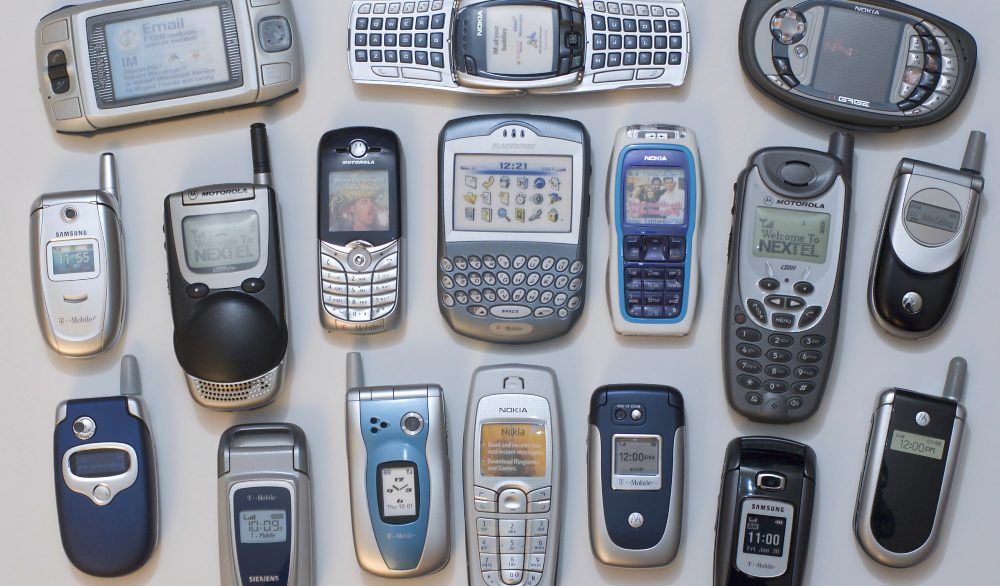
As Congress begins to finally consider action against the nation’s tech giants to control tactics increasingly viewed as monopolistic and anti-competitive, those deliberations prompt suggestions of breakup. And that makes me recall the mother of all breakups — the anti-trust lawsuit against AT&T and the ensuing 1984 divestiture of the telecom giant that was then the world’s largest corporation. The story also involves the important role played by the McCaw family in Seattle’s rise to tech-economy stardom.
After AT&T was forced under a court order to give up its 22 local Bell companies, seven Regional Bell Operating Companies (RBOCs) were created, which became the primary providers for telephone customers. The surge of innovation that followed the end of that era of communications monopoly came from new technologies, new firms, new platforms, new owners, and new business models from outside and inside the telecom world.
Back then, cable TV was a flourishing young industry, full of small-town entrepreneurs and a few visionaries who were just beginning to think about scaling up the business. Among those were the four McCaw brothers, sons of J. Elroy McCaw, a major figure in the broadcast industry who owned radio stations nationally and Channel 13 television locally. In 1966 Elroy McCaw sold his cable system in Centralia to his sons, including 16-year-old Craig. When the senior McCaw died of a stroke three years later, dozens of claims and lawsuits from creditors consumed the fortune the elder McCaw had amassed, and the McCaw estate filed bankruptcy. That left his sons with only the small cable system. Over the next few years the sons turned it from a company with 2,000 subscribers to one with $5 million in annual income. The McCaw brothers founded McCaw Communications and, with Craig taking the lead, began to explore cellular service.

The story began when Craig McCaw ran across an AT&T memo in which the company predicted the number of U.S. cellular users would be 900,000 by 1995. Thus, in what one writer called “the worst guess about future values since the Red Sox traded pitcher Babe Ruth to the New York Yankees,” AT&T buried its cellular program. That set Craig on a quest for licenses for the cellular spectrum. Within two years McCaw Cellular had purchased licenses in six of the nation’s 30 largest markets.
Using those as collateral and taking out loans to buy more licenses, McCaw eventually wound up with billions of dollars of spectrum, outpacing the growth of the “Baby Bells” in the emerging markets. And after purchasing MCI Communications’ mobile businesses in 1986 and LIN Broadcasting three years later, McCaw Communications partnered with AT&T as technical provider and introduced their Cellular One service in 1990 to create the first truly national cell-phone system and a brand that attracted numerous other cellular companies.
In its earliest days McCaw Cellular attracted some of the brightest young minds in the region. These pioneers put their own stamps on the industry, further cementing the Puget Sound region as a wireless mecca. First was John Stanton who, at 28, was the company’s first employee and quickly became COO and vice chairman. He was soon followed by 27-year-old Mikal Thomsen. By the late ‘80s, with Craig McCaw’s blessing, the two, along with Stanton’s wife, Terry Gillespie, McCaw Cellular’s senior vice president and controller, began acquiring rural wireless properties.
The three thus began a business and personal friendship that has extended across the decades, including ownership of minor league baseball teams and their current investment firm Trilogy Partners and its global arm, Trilogy International. Their several rural-focused startups soon merged to form Western Wireless Corp., which went public in 1996. Western Wireless spun off its VoiceStream Wireless in 1999 into a separate publicly traded company that was purchased by Deutsche Telekom in 2001. Deutsche Telekom renamed VoiceStream Wireless T-Mobile USA in 2002. Western Wireless merged with Alltel Corporation in August 2005.
There are multiple ironies in the tale of the McCaw brothers and AT&T. One is that the McCaw company helped make the Puget Sound region a global mecca for a new cellular communications industry. Another is that when, in 1994, the McCaw brothers sold McCaw Cellular to AT&T for $11.6 billion, it made Craig McCaw one of AT&T’s largest shareholders. The company was soon renamed AT&T Wireless.
The surprise sale also raised speculation about what might have happened if McCaw had remained as the visionary founder of a key cell-phone service. Might he have been regarded as the titan of his industry on the level of Bill Gates and Jeff Bezos?
T-Mobile Park, home of the Seattle Mariners of which Stanton is the majority owner and chairman, is a continuing testimony to the success of a group of young innovators who found opportunity in the breakup of the world’s largest company. So to those who would mouth dire predictions should Congress begin considering what should become of the nation’s tech giants, the counter should be “remember AT&T.” It’s a good bet that breaking the tech giants into pieces, particularly Google and Facebook, would allow innovators to emerge from among the pieces to create new products and new technologies, precisely what followed AT&T’s breakup.
This story is reprinted, with permission, from the author’s regular newsletter, Flynn’s Harp. Flynn was for many years the publisher of the Puget Sound Business Journal and he now heads a business consulting firm.
Discover more from Post Alley
Subscribe to get the latest posts sent to your email.
